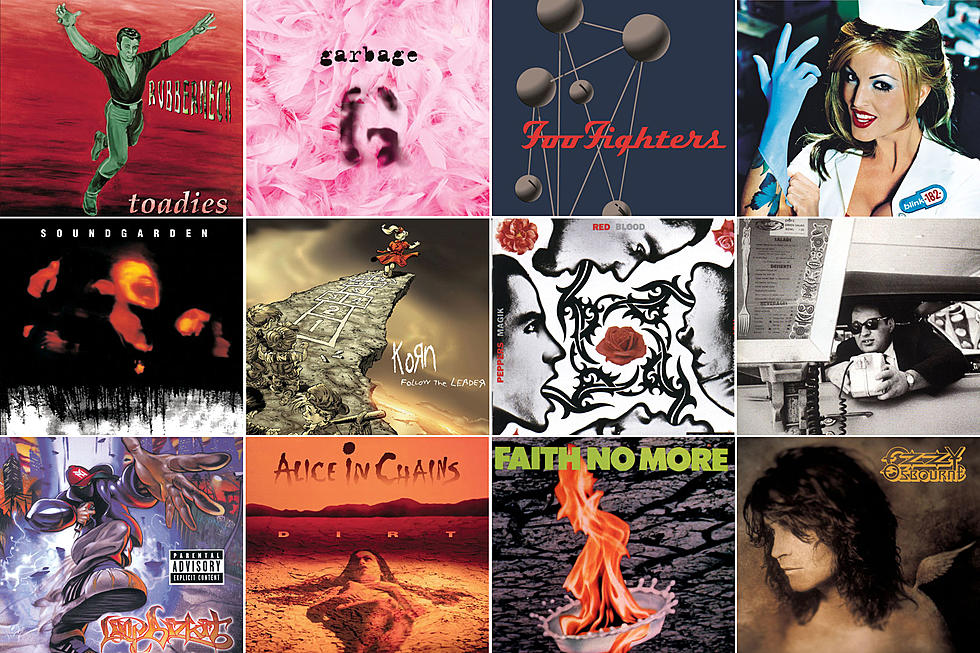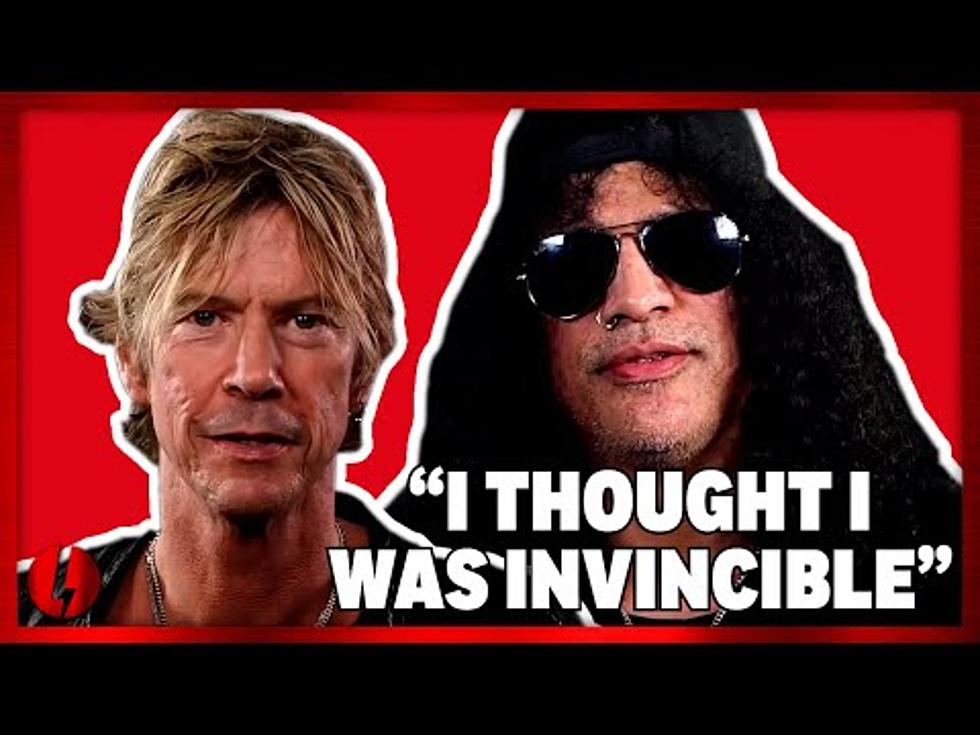
Read About the Two Outside Songwriters Who Helped Guns N’ Roses Create ‘Appetite for Destruction’
Unlike many rock acts in the late '80s, Guns N' Roses didn't typically turn to material from other artists in search of hits. But the liner notes to the band's Appetite for Destruction reveal the involvement of two songwriters, West Arkeen and Chris Weber, who weren't in the lineup.
A new profile looks back at how they came to be involved in the creation of the classic LP as well as how it affected their lives after its release.
LA Weekly offers an introduction to Arkeen and Weber, who bear the distinction of being the only non-GNR songwriters to earn credits on the massively popular album; as it happens, both men were part of the band's early inner circle, and their contributions came about through lucky timing and shared musical bonds.
Weber in particular had a major impact on Guns N' Roses' path to prominence. Introduced to future GNR co-founder Izzy Stradlin by Tracii Guns when they were still teenagers, he ended up forming a creative partnership with Stradlin and Axl Rose, with the three going on to co-found the band Hollywood Rose. The entire Weber family played a role in helping the group get off the ground: His parents housed the trio at their home, and Weber's father paid for a five-song demo they recorded in 1984.
The band didn't last, but some of that early material lingered after Rose and Stradlin started Guns N' Roses, and Weber — who told LA Weekly he played bass during some early GNR rehearsals before moving to New York — ended up with a songwriting credit on the Appetite track "Anything Goes" as well as "Move to the City" and "Reckless Life," a pair of songs that ended up on the band's 1988 G N' R Lies release.
Although he points out he's "not really making any radio money" from those songs, his Guns N' Roses involvement had an undeniable impact on his career. He started a new version of Hollywood Rose after Appetite took off, and later co-founded U.P.O., a band that scored a pair of rock hits off its 2000 No Pleasantries LP. He's since started a new chapter as a therapist, but still plays guitar regularly, and quips that he held onto his old Les Pauls "in case the next gig comes up."
Like Weber, West Arkeen played a more fundamental role in Guns N' Roses' creative evolution than many casual fans would ever expect. Drifting into the group's creative orbit after striking up a friendship with his then-neighbor Duff McKagan, Arkeen was later referred to by Rose as "like the sixth member of the band," and ended up helping write a number of GNR tracks, including the Use Your Illusion numbers "Yesterdays" and "The Garden."
Arkeen's Appetite contribution, "It's So Easy," stemmed from him teaching McKagan alternate guitar tunings — in this case, the open E tuning, without which McKagan later said the song "wouldn’t have existed." Like Weber, Arkeen never achieved household name status as a result of his involvement with the group, although he did parlay that success into a songwriting career while continuing to record his own material — including the group Outpatience, whose sole LP featured appearances from members of GNR.
Unfortunately, like many rock artists of the era, Arkeen led a risky lifestyle that ultimately proved too difficult to leave behind. Although his brother Abe tells the Weekly that Arkeen managed to get sober at one point, he "got torched really badly" in an unspecified incident — injuries for which he was prescribed painkillers that may have contributed to his final downward slide. On May 30, 1997, Arkeen's body was discovered at his home; the coroner's office later determined he'd succumbed to "acute heroin, morphine and cocaine intoxication."
Still, Arkeen's legacy lives on — and has seen something of a rebirth through the partial reunion of the classic GNR lineup, who've opened their Not in This Lifetime tour with performances of "It's So Easy." As Abe Arkeen tells the Weekly, "What’s wonderful is GNR is revived and my brother’s music is still out there affecting people."
Guns N’ Roses Songs Ranked Worst to Best
More From WPDH-WPDA









